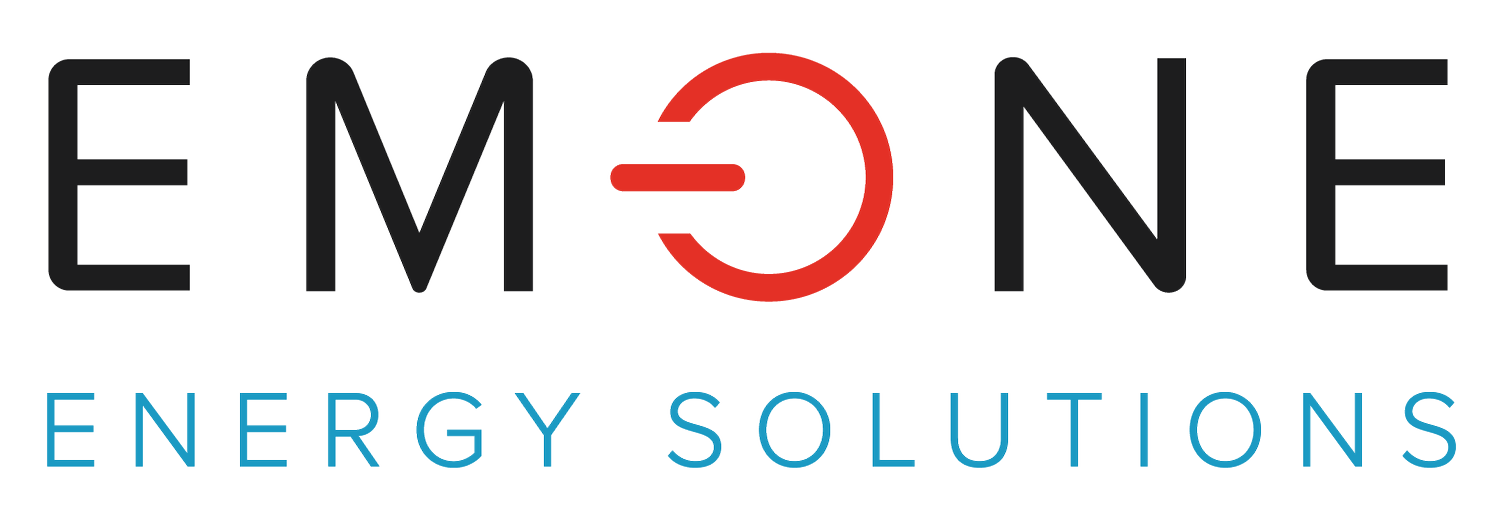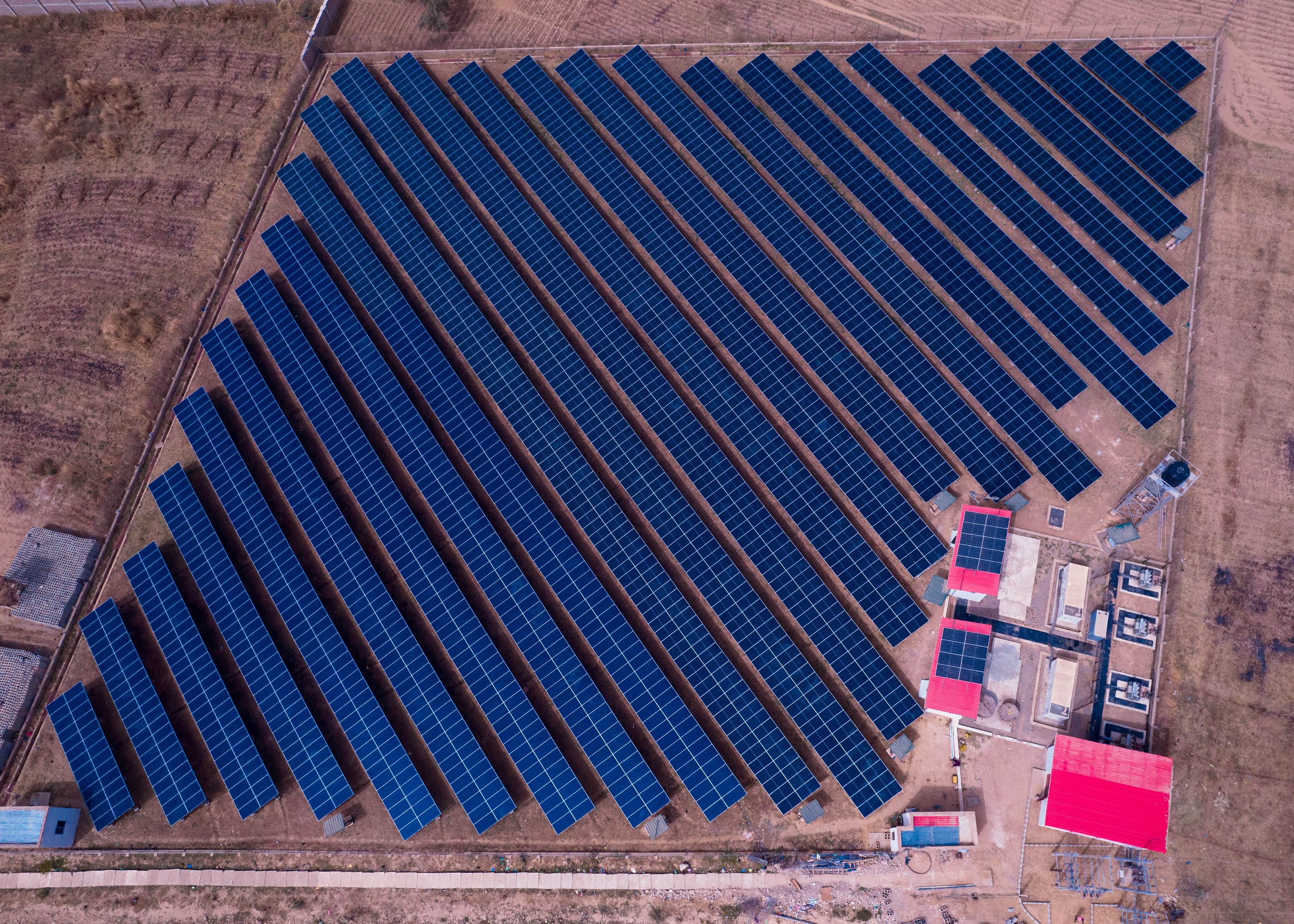Kano 1 MW Interconnected Mini-Grid
A pilot project pioneering a 100 MWp initiative for C&I electrification in Nigeria
The first phase of a pioneering 100 MWp initiative demonstrating the potential of interconnected mini-grids (IMGs) for commercial and industrial (C&I) electrification in Nigeria.
Kano 1 MW Interconnected Mini-grid - Photo credit ©EM-ONE
Introduction
EM-ONE successfully commissioned a 1 MW solar power plant within the service area of Kano Electricity Distribution Company (KEDCO), an impressive pilot project with a 100 MWp development agreement between Bagaja Renewables and KEDCO. In fact, this is part of a larger effort to demonstrate the feasibility and benefits of interconnected mini-grids (IMGs) on a large scale in Nigeria, including the viability of private sector deployment of interconnected mini-grids for C&I electrification.
The project was a collaborative effort with Bagaja Renewables, backed by an investor consortium including the World Bank (through the Nigerian Electrification Project with the Rural Electrification Agency) and the Global Energy Alliance for People and Planet.
Context
The site of the project is an industrial center in Kano that houses the new Kano railway station, dry port and a nearby housing estate. The primary objectives of this project were to increase the availability and reliability of energy for KEDCO customers, boost the share of renewable energy in KEDCO’s energy mix, and demonstrate the feasibility of interconnected mini-grids (IMGs) at scale in Nigeria.
This initiative is a pilot project under a 100 MWp development agreement between Bagaja Renewables and KEDCO, designed to leverage economies of scale in procurement, construction, operation, and management. The goal is to replicate the interconnected mini-grids model across KEDCO’s network in regions like Katsina and Jigawa, reinforcing energy resilience and reliability for both residential and industrial consumers, building over 200 MW through 100 interconnected mini-grids, bringing sustainable energy to potentially 25 million Nigerians.
Interconnected mini-grids (or IMGs) are distributed renewable energy facilities connected to the main grid. Their dual capability to operate autonomously or as part of the grid makes them highly versatile, and they are an effective solution for underserved rural and peri-urban areas that have higher energy demand than most off-grid rural locations.
Solutions
The selection of EM-ONE as the EPC and technology partner was a strategic decision influenced by the company’s proven track record and innovative approach to renewable energy projects. EM-ONE’s high visibility and success with the Mabushi Solar project, which demonstrated the use case for large-scale solar for commercial and industrial users in urban areas, played a crucial role in their selection.
The solar power plant we designed employs a hybrid system combining solar and diesel power. This interconnected solar-diesel hybrid power plant is crucial for ensuring a reliable supply of electricity, feeding power into essential infrastructure such as the Kano railway station, a dry port, and a nearby housing complex within the Gida Dubu Estate in Kombotsu Local Government Area.
Several critical components make up this system, including solar panels, inverters, and metering equipment for over 2,000 consumers. The project also involved revamping and rehabilitating the low voltage network to support the new infrastructure and ensure efficient power distribution.
The interconnected solar-diesel mini-grid has an AC-coupled design, which ensures seamless integration with the existing grid, providing a stable and reliable electricity supply to the connected areas. This integration is particularly important for industrial clusters, which include factories, the Kano railway station, and the dry port, all of which are critical to the region’s economic development.
Benefits and Impact
Energy reliability
This project improves the quality and availability of electricity supply for the connected areas, ensuring over 16 hours of reliable electricity daily, which is a significant improvement over the previous erratic and unavailable power supply.
This enhanced energy reliability is particularly beneficial for the C&I cluster, including factories, the Kano railway station, and a nearby housing estate. Reliable power is essential for the smooth operation of these facilities, and the improved electricity supply will undoubtedly boost their productivity and efficiency.
Improving electricity access through grid densification and intensification
Reduced CO2 emissions
By avoiding the use of diesel generators, the project prevents the emission of 1,035 tonnes of CO2 annually, which is equivalent to the yearly emissions of 225 cars.
Reduced costs and improved viability for the private sector/C&I
The project showcases the viability of private sector deployment of interconnected mini-grids (IMGs) in Nigeria when the right enabling environment exists. REA’s Nigeria Electrification Project (NEP) has supported the rise of these kinds of projects across the country. The mini-grids add generation capacity to the existing grid while mutually benefiting the developer and the electricity distribution company (DisCo) through profit sharing creating a win-win scenario.
Unlocking private capital in the distribution sector
Unlocking private capital in the distribution sector encourages further investment in renewable energy projects. This is crucial for the long-term sustainability of Nigeria’s energy sector, as it reduces reliance on government funding and encourages innovation and efficiency in energy distribution.
Interconnected mini-grids (IMGs) are the future
KEDCO’s broader ambition to become the first “Green DisCo in Africa” is significantly supported by this project. By leveraging embedded solar-hybrid power plants, mini-grids, energy storage systems, and power purchase agreements, KEDCO aims to transform its energy infrastructure and set a benchmark for other distribution companies in the region.
Adamu Gumel, chairman of Kano DisCo, commented:
“Interconnected mini-grids [will feature] everywhere in our network in Katsina and Jigawa to augment electricity supply for our consumers, while we prioritize bulk grid supply to industrial consumers. We are looking at some of our key industrial clusters such as Tokarawa and Sharada for 24-hour supply through embedded generation.”
Our CEO, Mir Islam, added:
“This 1 MW solar power plant in Kano is a significant milestone for EM-ONE and for Nigeria’s renewable energy sector. It exemplifies our commitment to innovative solutions that address critical energy challenges while promoting sustainability. IMGs not only improve energy reliability for industrial and residential consumers but also paving the way for large-scale renewable energy adoption across the country.”
Interconnected mini-grids (IMGs) are set to become the solution for Nigeria's energy challenges. This is evidenced by the recent 350 MW Memorandum of Understanding (MoU) signed between EM-ONE and Nigeria’s Rural Electrification Agency (REA) to increase energy capacity within Nigeria. EM-ONE’s focus on developing and deploying interconnected mini-grids will significantly enhance Nigeria’s renewable energy sector and further support the country’s sustainable development.
Kano 1 MW Interconnected Mini-grid - Photo credit ©EM-ONE
Project Partners
EM-ONE is an engineering and technology firm with over a decade of experience accelerating the energy transition in Africa by providing affordable, reliable, modern energy in the region. The firm’s track record includes over 320 solar project sites across Africa; 20MW PV capacity installed and 90MWh energy storage capacity deployed as well as winning AFSIA’s best commercial & industrial solar project in Africa 2021.
Bagaja Renewables is a solar mini-grid developer and operator, with a strategic focus of building and operating 500MW of solar mini-grids by 2025. With framework agreements with 5 distribution companies across Nigeria, Bagaja Renewables plans to build a mix of interconnected and isolated solar mini-grids within their franchise areas.
The Rural Electrification Agency (REA) has the mandate to improve the quality of life and economic opportunities for unserved and underserved communities in Nigeria through universal energy access.
The World Bank is one of the world’s largest sources of funding and knowledge for developing countries. Its five institutions share a commitment to reducing poverty, increasing shared prosperity, and promoting sustainable development.
Global Energy Alliance for People and Planet (GEAPP) works to tackle energy poverty and the climate crisis by developing and scaling innovative green energy solutions in developing and emerging economies.



